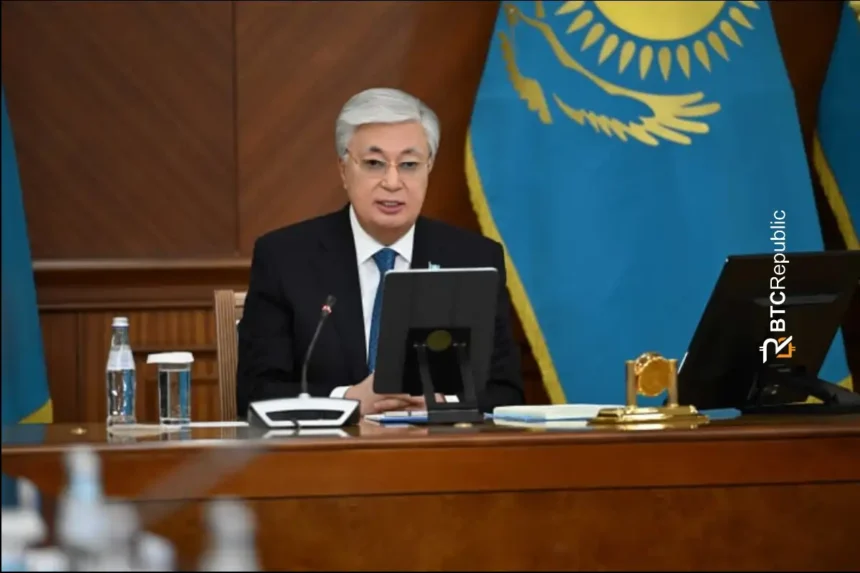Kazakhstan President Kassym-Jomart Tokayev directed government institutions to establish a national cryptocurrency reserve, marking a significant policy shift toward digital assets for the Central Asian nation.
In an address to the nation on Tuesday, Tokayev instructed the creation of a “State Fund of Digital Assets” that would accumulate strategic cryptocurrency holdings from “the most promising assets of the new digital financial system.” The fund would operate under the Investment Corporation of the National Bank of Kazakhstan.
The president emphasized accelerating development of a comprehensive digital assets ecosystem while calling for crypto market liberalization through new banking legislation. Tokayev urged ministers and financial regulators to adopt enabling laws by December 2025.
Beyond cryptocurrency reserves, the president announced plans for up to $1 billion in government and central bank investments in high-technology and fintech sectors. The initiative aims to redirect domestic banks from low-risk instruments toward productive lending to the real economy.
Tokayev highlighted the success of Kazakhstan’s digital tenge central bank digital currency, which already finances various state projects. He called for scaling CBDC usage across republican and local government budgets as well as state-controlled holdings.
The policy announcements represent Kazakhstan’s evolution from conservative cryptocurrency regulation toward embracing digital assets. The country became a major crypto mining destination following China’s 2021 mining ban, initially requiring miners to sell only through exchanges registered at Astana’s financial hub.
Recent regulatory changes have relaxed these restrictions, with authorities planning to legalize crypto trading on additional licensed platforms beyond the Astana International Financial Centre. In June, the National Bank launched a crypto card project, with local banks testing Mastercard-compatible solutions.
Kazakhstan’s banking sector maintains higher profitability than developed markets, though Tokayev criticized domestic banks for avoiding economic lending in favor of conservative investments. The proposed high-tech investment program aims to channel banking capital toward productive sectors.









